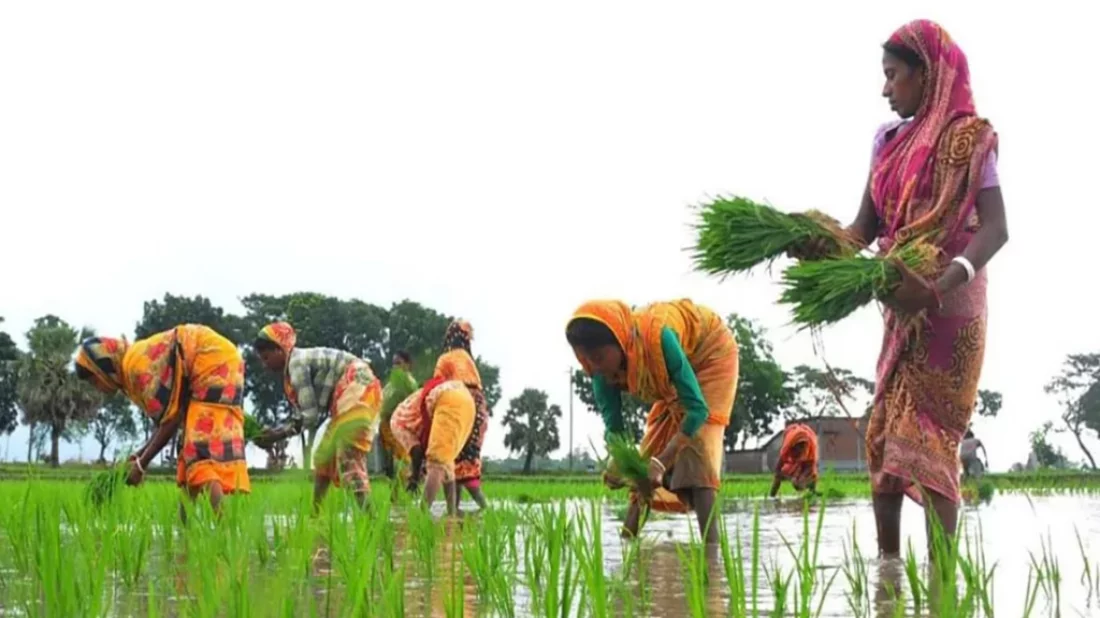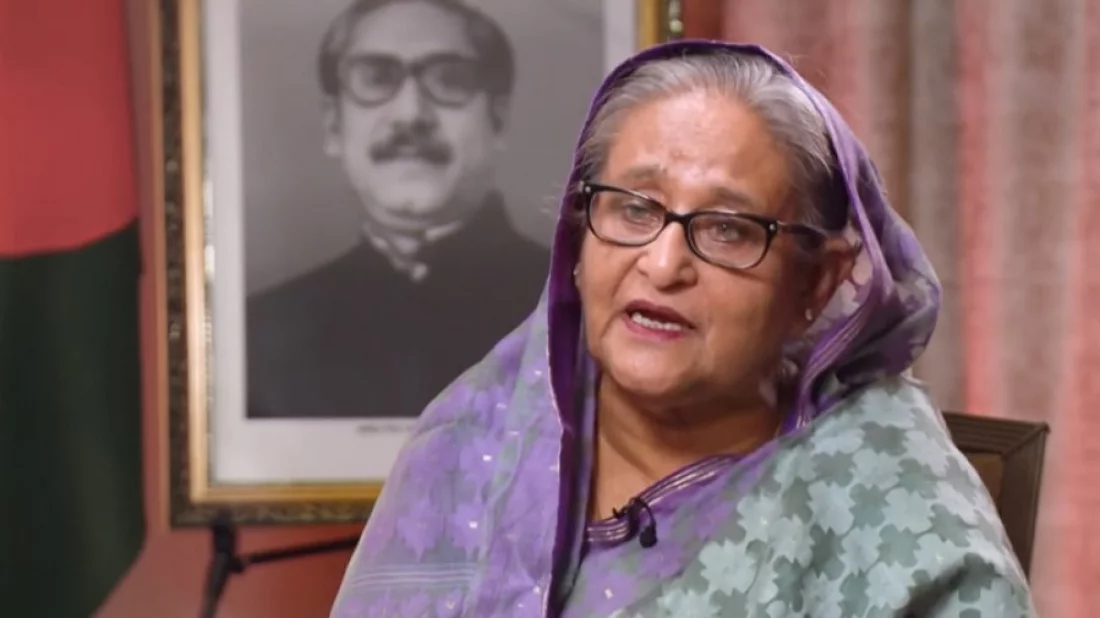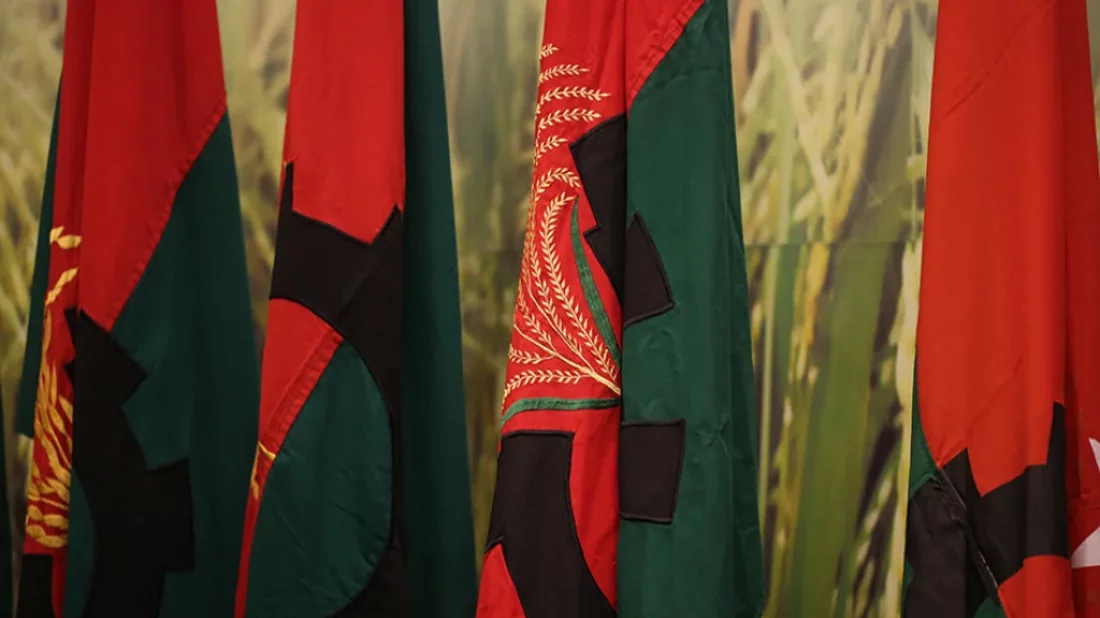
World Food Day is being observed on October 16 in Bangladesh, just like many other countries around the world.
Today, Bangladesh stands proud of its achievements in becoming self-sufficient in rice, fish, meat, and vegetable production.
Furthermore, Bangladesh ranks among the top 10 countries globally in the production of 12 key agricultural products.
Bangladesh’s agricultural advancements
According to the State of Food Security and Nutrition in the World report of the United Nations Food and Agriculture Organization (FAO), the production of major food grains in Bangladesh has increased three to five times in the 52 years since independence.
Additionally, Bangladesh has secured a place among the top 10 countries globally for the production of 12 key agricultural products.
In the past, the country predominantly saw investments streaming into the garment industry, which was a major focus for investors.
However, there has been a noticeable shift in recent times, with these same investors redirecting their funds towards agriculture.
This shift is reflected in the establishment of modern, technology-driven agricultural farms.
According to the concerned ministries and divisions, including the Ministry of Food, Bangladesh is now self-sufficient in the four main foods.
The country has achieved self-sufficiency in the production of rice, fish, fish and vegetables. Not only that, Bangladesh is now the third largest producer of fish in the world.
According to the Ministry of Fisheries and Livestock, the poultry industry has grown by 200% in the last 10 years.
According to the Department of Livestock and the Bangladesh Poultry Industries Central Council (BPICC), the production income of the poultry industry in 2010 was Tk10,000 crore, which has now increased to Tk35,000-40,000 crore.
BPICC said about 165,000 people in the country are involved in the production of eggs and meat. The Department of Livestock claims that there are a total of 81,614 poultry farms in the country.
According to the Bangladesh Agricultural Research Council, a person has a daily demand of 120 grams of protein. Bangladesh met that demand in 2017.
In 2018-19, Bangladesh produced 7.5 million tons of white and red meat. Now it has increased. This was 1.26 million tons in 2009-10. As a result, meat production has increased almost six times in the last 10 years.
According to the Ministry of Agriculture, the total food grain production in 2008-09 was 32,896,000 thousand tons. In 2022-23, it increased to 47.768 million tons. In addition, there has been continuous success in the production of other crops.
In the last 15 years, corn production has increased nine times, potatoes two times, pulses four times, oilseeds two times and vegetables eight times. Bangladesh is among the top 10 countries in the world in the production of 22 agricultural products.
Of these, rice, vegetable and onion production is third, jute second, tea production fourth and potato and mango production seventh.
Rice production was 31.3 million tons in 2008-09, which has increased to more than 40 million tons in 2022-23.
Wheat production was 849,000 tons in 2008-09, and 1.17 million tons in 2022-23, maize or corn at 700,000 tons, now 6.4 million tons, potatoes from 500,000 tons to 10.4 million tons, vegetables from 3 million tons to 22 million tons.
In the last 15 years, a total of 699 improved or high-yielding varieties have been developed and 708 agricultural technologies have been developed. Of these, 80 are rice varieties.
The production of milk and eggs in the country has also increased significantly in the last decade. According to the annual estimate, 104 eggs are needed for each person. However, its annual supply is currently 103.
According to the FAO, every person needs 250 grams of milk daily. To this estimate, a total of 15.2 million tons of milk is required annually.
The total production in the last fiscal year was 11 million tons. In 2009-10, milk production was only 2.3 million tons.
Private investment is playing a significant role in advancing Bangladesh's dairy sector, in addition to the state-owned entity Milk Vita.
Despite a notable increase in milk production over the past decade, Bangladesh still relies on milk imports to meet its demand.
In 2007, the government initiated the National Livestock Development Policy, but it was not until 2016 that the draft National Dairy Development Policy was completed.
Currently, there are more than 68,000 registered dairy farms operating throughout the country.
Currently, cultivated fish currently occupy 56% of the domestic market. According to the Fisheries Department, a total of 4.3 million tons of fish have been produced in the 2018-19 fiscal year.
In 2009-10, it was 2.9 million tons. It has now grown to more than 5.4 million tons.
According to a report from the FAO, Bangladesh ranks third in the world in inland open fish farming and fifth in aquaculture.
A person needs 60 grams of fish daily, and the supply was 62.58 grams.
Ilish fish has been playing a key role in overall fish production in the last two years. In the financial year 2017-18, the country produced 498,000 tons of ilish.
In the next fiscal year, it increased to 517,000 tons. And this year, it is expected to cross 600,000 tons.
Bangladesh achieved self-sufficiency in rice and vegetable production a few years ago.
According to the Department of Agricultural Extension, the country produced 38.6 million tons of rice in the 2018-19 fiscal year.
This production has been possible due to the high yield of Aush and Aman rice.
Minister of Agriculture Mohammad Abdur Razzaque said Bangladesh has achieved tremendous success in food production in the last 10 years.
Being able to export food after meeting local demand is a huge achievement for the country, he added.
World Food Day
The idea of commemorating World Food Day on October 16 can be traced back to the 20th General Assembly of the Food and Agriculture Organization of the United Nations (FAO) in 1979.
During this assembly, Dr Pál Romány, then Hungary's Minister of Agriculture and Food, proposed the idea of celebrating this day worldwide.
Since 1981, World Food Day has been recognized and celebrated globally, serving as a significant occasion to raise awareness about critical issues related to poverty and hunger.
This celebration now extends to more than 150 countries worldwide.
This year’s theme is “Water is life, water is food. Leave no one behind.”
Bangladesh, every year, celebrates the day with the Ministry of Agriculture and the United Nations Food and Agriculture Organization (FAO) through various workshops and programs.
The president and the prime minister have issued separate messages marking the day.









